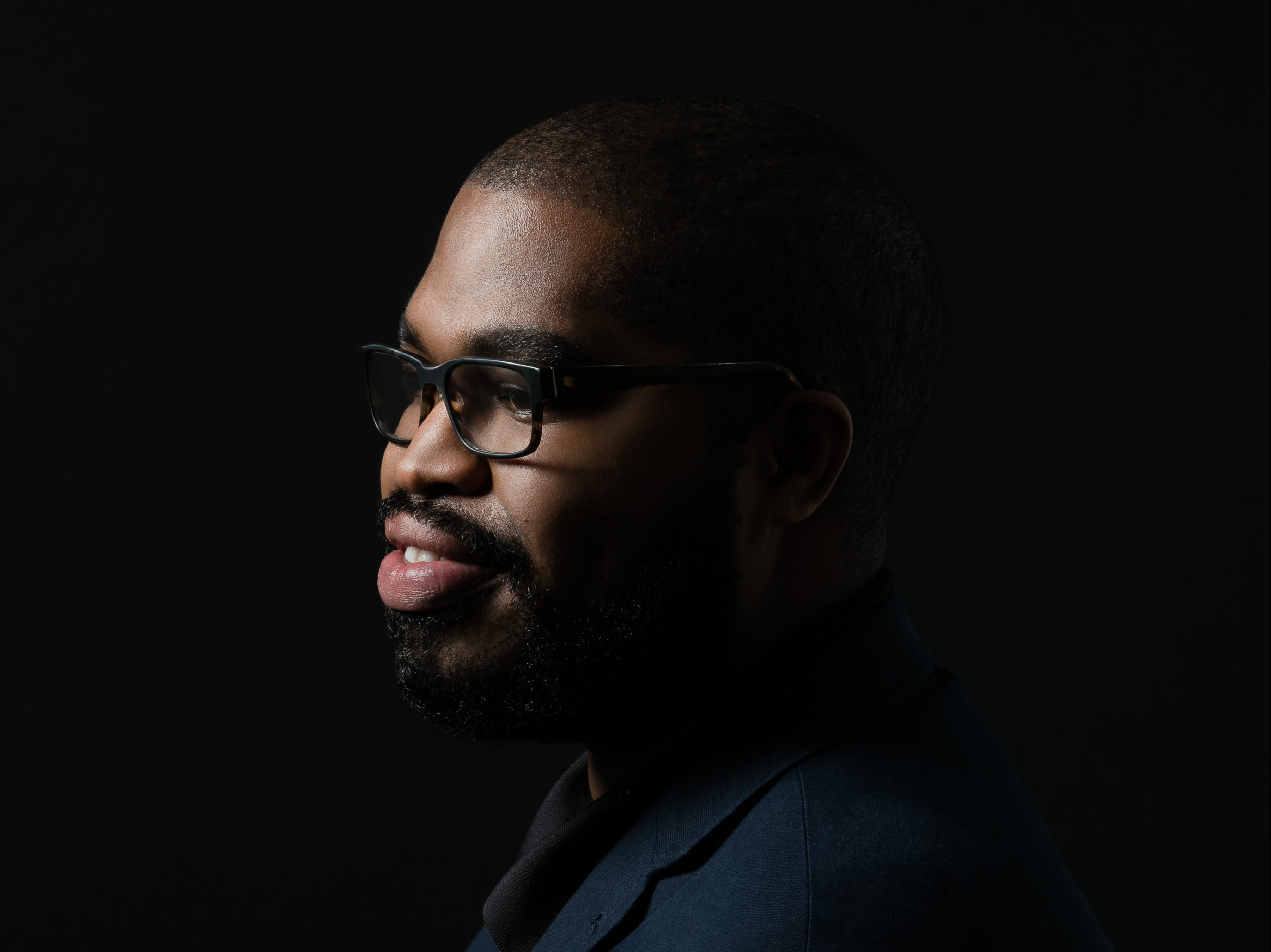In an interview with Grace Kepperling, poet Tyree Daye talks about writing and place. Daye will read virtually on Tuesday, Oct. 20, at 7:30 p.m. To attend the reading, email Kevin Boyle (boylek@elon.edu).
“Writers and poets look at the world and attempt to make meaning of it. And whether that’s a poet like me who’s looking at memories or a poet that’s looking at today, we attempt to make meaning of the world that we see and that is what we will continue to do.”

Youngsville, North Carolina is an attractive blend of old and new. It evokes a feeling of modernity inside a hub of Southern hospitality. Poet Tyree Daye grew up in Youngsville and has very fond memories of living up in the small town. He says, “Place is a big part of my poetry, Youngsville in particular. It always shows up in my work — maybe through a tobacco field or maybe through just the idea of being in a neighborhood — especially a small-town neighborhood, there’s a lot of connections between people because you’re in this small location.”
Daye is a “poet of memory,” as he puts it. He is an award-winning writer and the author of two poetry collections: “River Hymns” (2017) and “Cardinal” (2020).
Daye comes from a very close-knit family background. When asked about how they influenced him as a person and writer, Daye said, “my family is the reason that I write. I grew up in a family of storytellers, right? People who would retell memories as a story and by me listening to those memories—that was like my first creative writing course. Learning how to tell a story and how to move people, how to engage people.”
Daye writes from experience. He writes because of life-learned inspiration. He explained that because he is a poet of memory, he puts himself into memories as he writes, and he is still exploring his early adolescence.
Our ideas of space, as we grow up, are constantly changing. The larger changes in our perception of space due to COVID-19 are no exception. We are constantly having to readjust how we relate to people around us in any given space or place.
Writing, however, as Daye explains it, maintains its purpose regardless of outside changes. He said, “Writers and poets look at the world and attempt to make meaning of it. And whether that’s a poet, like me, who’s looking at memories, or a poet that’s looking at today, we attempt to make meaning of the world that we see and that is what we will continue to do.”
Daye is also a teaching assistant professor at UNC-Chapel Hill, and he said the massive changes in education due to the pandemic have definitely affected him and his students. Year to year, class to class, he tries to give his students a “writing toolbox” of sorts, providing them with a more general set of tools rather than instill one general piece of wisdom. He works with creative writing students specifically and finds that the classes are a lot less personable and connected because of COVID-19: “It’s definitely different being in a creative writing class where we need to kind of feed off each other’s energy and body language. My students really have to make sure they’re speaking up and really being vulnerable through such an impersonal space and it’s on me to help bring that out of them. I try to find other ways for them to be vulnerable and really that’s just a lot of sharing and me asking lots of questions to make sure they’re really considering their work.”
Daye will be speaking to the Elon community and reading some selections from his newest collection of poems, “Cardinal,” on Tuesday, Oct. 20. He says that he is very excited about his new work.
“I’ve really been thinking about that difference between ‘Cardinal’ and ‘River Hymns’ — ‘River Hymns’ is very much about this child who has learned all these superstitions and kind of has to decide what to do with them and how to move through the world with them. I think Cardinal is definitely an older speaker who is kind of moving in between worlds, and while that is happening, the book is exploring other narratives through the Great Migration—people leaving a place they’d called home to seek more, and sometimes being called back by family and other things… and sometimes not ever coming back.”
During his digital reading on Oct. 20, Daye will be debuting some new poems as well. For more information about how to attend the reading, please email Kevin Boyle at boylek@elon.edu.



